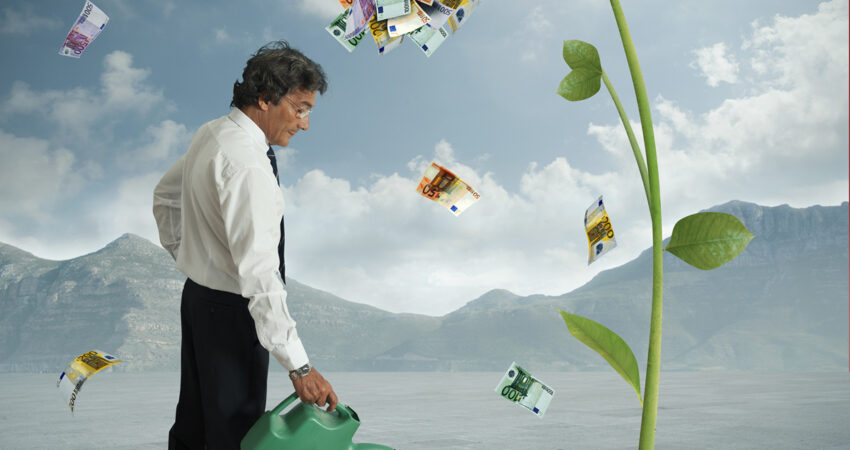Copyright: Adobe Stock #47465290
The energy debate in Germany has taken on a new urgency as the far-right party Alternative für Deutschland (AfD) surges in the polls, challenging the country’s green energy transition. Known for its strong opposition to the Green Party’s and the government’s climate policies, the AfD has managed to sharpen its political profile, capitalizing on growing public concerns over the economic and social costs of Germany’s ambitious energy goals.
Growing Support for Revision of Current Green Energy Policies
Recent polling data reflects a significant shift in Germany’s political landscape. Germany’s new radical right-wing populist party polled countrywide at 18% in two surveys conducted lately by INSA and Infratest Dimap, putting the party several points ahead of the Greens. Perhaps, the main attraction of the right’s rhetoric is in strong criticism of immigration policies and Germany’s stands concerning the armed conflict in Ukraine. But the party also skillfully uses the growing discontent among voters with the current government’s energy policies.
In particular, the AfD’s parliamentary group leader in Bundestag, Alice Weidel, has been heavily criticising the government’s approach to decarbonisation, arguing that the planned energy transition will undermine the economy from the ground up, that is hitting the least protected members of society first. Weidel has specifically targeted the government’s proposals to convert home heating systems to renewable energy sources, labeling these plans a “heating massacre.” At a press conference earlier this year, she warned, “People who cannot afford it will have to sell their houses,” highlighting the AfD’s narrative that the green transition is an elitist project that will “impoverish” ordinary Germans.
The far-right populist group is not the only one capitalising on popular unease with the growing energy prices and potential fuel shortages. A newly-created left-wing “Sahra Wagenknecht Alliance – Reason and Justice” (BSW) also made energy policy a central issue, criticising such government’s decisions as to turn away from cheap Russian energy supply, its introduction is a controversial heating law and EU plans to ban combustion engine cars after 2035. Polls, cited by Reuters almost a year ago, suggest that the newborn party could get as much as 20% of the votes. The share reached 32% in the eastern regions. All in all, radical parties gained an unprecedented support.
Energy Policies: the Alternatives
The current German government, a coalition between the center-left Social Democrats (SPD), the neoliberal Free Democrats (FDP), and the environmentalist Greens, is firmly committed to its ambitious climate goals. These include a significant expansion of wind and solar power, an accelerated phase-out of coal (ideally by 2030), and a drive to promote electric vehicles as part of a broader strategy to achieve carbon neutrality by 2045.
In contrast, both left and right opposition parties advocate for a more conservative energy policy that prioritizes economic stability and energy security over rapid decarbonization. Critics oppose rapid phase-out of coal and nuclear energy, arguing that these sources are essential for maintaining energy independence and preventing job losses in traditional industries. They also criticizes the government’s plans to transition heating systems to renewable energy, claiming that the costs will be unbearable for many households.

Copyright: Adobe Stock #311626926
This approach is particularly well perceived among rural dwellers, especially in eastern Germany, where opposition to wind power is significantly higher. A study by IW Köln institute and TU Dresden University found that nearly a third of the rural population in eastern Germany opposes wind power, compared to only 17.7% in rural western Germany. The picture is changing and not in favor of the green transition. Public support for the transition dropped from 49% in 2021 to 40% in 2023, according to a survey by Saxony’s environment and energy ministry. Citizens’ initiatives have sprung up to oppose the installation of wind turbines, driven by concerns over property values and landscape aesthetics. “This is not about right or left. This is simply about a story that affects all of us,” said Frank Stuehmer, leader of one such initiative, who mentioned he would be voting Alternative für Deutschland for the first time due to these concerns.
Dependency on Raw Material Imports for Green Energy
As Germany ramps up its renewable energy capacity, concerns have arisen about the country’s reliance on imported raw materials, concentrated in the hands of just a handful of suppliers. The production of solar panels, wind turbines, and batteries for electric vehicles depends heavily on rare earth metals and other critical minerals. Rare earth elements are key components in the powerful magnets used in wind turbine generators and electric vehicle motors, improving efficiency and performance. In solar panels, rare earths enhance the durability and efficiency of photovoltaic cells, while in batteries, they contribute to the durability and temperature resilience of energy storage systems.
The troubling part is that many of these elements are sourced from outside Europe. In case of Germany, almost 100% of such materials are imported. According to the German Federal Institute for Geosciences and Natural Resources (BGR) 70-80% of rare earths come from China. While the share of US’s supplies, second-largest in Germany, is some 5-10%. Dependency on imports introduces significant geopolitical risks, as the supply chains for these materials are often concentrated in politically unstable regions or dominated by countries like China.
Compounding these concerns, China’s recent export controls on crucial semiconductor materials such as gallium and germanium have begun to hit the global supply chain, raising fears of potential shortages of advanced chips and military optical hardware. According to reports, the overall export volume of Chinese gallium has dropped by about half since the controls were implemented, and reserves in Germany could soon be depleted. Chinese government does not shy away from putting similar restrictions on some other rare earths. Each shipment now requires approval, which can take 30 to 80 days, adding uncertainty and making long-term supply contracts impractical. Even though the gallium and germanium obtained through China’s new export licensing program account for only a small portion of past purchases, according to Jan Giese, Senior Manager at Frankfurt-based trading firm Tradium, these export controls are adding pressure on markets outside China, making an already challenging market even more complex.
Gallium and germanium are essential for producing advanced microprocessors, used in almost each and every green tech including alternative power generators. It is also crucial for optical fiber products, as well as night vision goggles, a much-needed defense equipment. The ongoing export restrictions by the Chinese government could severely hinder the production of such items, further exacerbating the challenges Germany faces in securing the raw materials necessary for its green energy ambitions.
The opposition parties seized on these developments, arguing that the government’s green energy strategy increases Germany’s vulnerability to external pressure. They warn that this dependency could undermine national security and lead to higher costs for consumers, further fueling public dissatisfaction with the current energy transition.
Even if the AfD and the BSW remain in opposition, their influence could still constrict wind power development, especially as the likely fragmentation of the vote in upcoming elections could make forming stable governments tricky. “They (AfD) have been working on shifting the debate for 10 years, and we are seeing this growing resistance among the population. The fact that they are succeeding should definitely not be underestimated,” said political analyst and Vanderbilt’s ninth chancellor Daniel Diermeier.
Conclusion
Germany’s energy policy is at a crossroads, shaped by both political pressures and practical challenges. The growing support for even marginal political parties criticizing current energy policy, reflects a significant portion of the population’s concerns about the government’s current trajectory. As these concerns gain political weight, the government may need to strike a delicate balance between maintaining its green ambitions and addressing the economic and social realities faced by its citizens. How Germany navigates these tensions will not only shape its energy future but could also set a precedent for other countries grappling with similar challenges.

